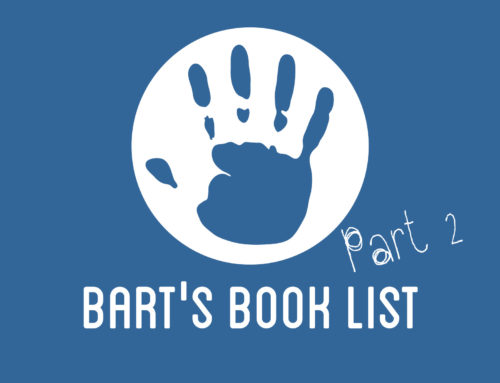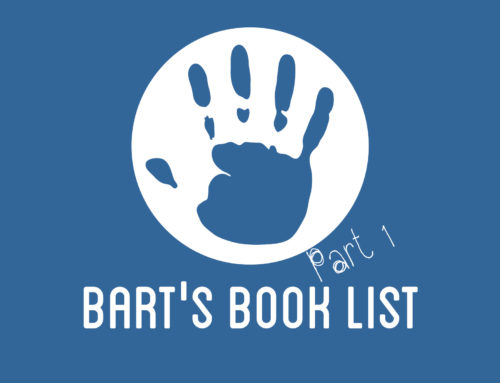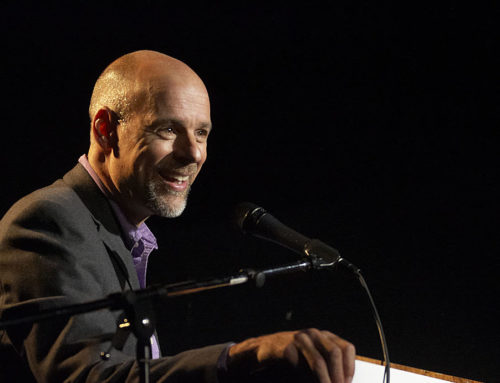Recently it was my privilege to speak to USC’s Secular Student Fellowship. Instead of speaking, however, I asked the group to help me overhaul a document I found on the Yale Humanist Community’s website called What Is Humanism?, which I think almost but not quite captures the essence of many of those students’ spiritual identities, along with my own. They readily agreed, and before long all of us were happily swapping stories, parsing language and losing track of time.
We didn’t end up with a finished product, of course. On the contrary, at some points we nearly despaired at the utter inadequacy of the word humanism, and strongly considered substituting for it with blank spaces until we could come up with something better. We couldn’t find a place for experiences of wonder and transcendence, too, even though we’ve all had them. Nevertheless, by the time we packed it in, I think everyone – including me – felt a little bit surer of who we are and what we’re about.
Here’s our draft. Please, whether or not you’re a secular humanist, tell me how it lands with you and how I can make it more helpful for insiders and outsiders alike. And if you come up a better name for us than ‘secular humanist’, don’t be shy about it. After all, even though almost nobody remembers it now, Google started out as BackRub.
——
Secular humanism can be characterized in two different ways.
In one sense, secular humanism refers to a particular approach to life. The term humanist applies to any person or organization that shares that approach, whether or not they claim the name, in the same way someone afraid of the dark is an achluophobic, even if they’ve never heard of that word.
Secular humanism also refers to a particular historical movement which is comprised of individuals and organizations that openly embrace that identity.
Secular humanism doesn’t have any list of mandatory creeds, dogmas, holy books, or prophets. While all of us value truth, love, and the well-being of sentient beings, there is no single thing that all secular humanists believe to be of supreme importance. However, this doesn’t mean a humanist is anyone who likes the sound of the word. A humanist, by our definition at least, takes a particular side on each of three important debates:
Reasoned Experienced vs Divine Revelation. Humanists reject the use of divine revelation, and instead rely on reason, experience, naturalism, and community deliberation. Humanists don’t think these epistemic methods are perfect in every way, but only that they’re by far the best we’ve got to work with at this point.
Meaning vs Nihilism. Nobody knows where scientific inquiry will ultimately lead us, but humanists believe rational people will always conclude that there is morality and purpose to our lives. The fact that the Universe as a whole may be aimless does not make our individual lives any less meaningful or our compassion, honesty and other virtues any less valuable.
The Absence vs Presence of Gods. Secular humanism is non-theistic. This mean that no God or gods have an active presence in a humanist’s life. A humanist may be an atheist, believing that God doesn’t exist, an agnostic, who neither believes nor disbelieves, or someone who is simply uninterested in the question. Regardless, we secular humanists rely on ourselves and one another to solve our problems, rather than on any kind of supernatural force.
Because we reject supernaturalism, secular humanists are often accused of being a cult of science. “Scientism” is the word critics most commonly use to suggest that we share a blind faith in the conclusions of the scientific community. In fact, secular humanism is an approach to life, not a fixed understanding of the Universe. If we humanists have any dogma, it is only that each individual should make their own decisions about life’s most important questions, based on reason, experience, and honest critical thinking, keeping in mind that because our base of evidence keeps changing as new data becomes available, so too must our beliefs.
Nevertheless, gathering and discussing new and relevant information has been and will remain a community process, because no individual has time and energy enough to carefully study each and every important question. So then, we secular humanists must depend on each other as we research those questions and continue to craft our own best answers to them.



